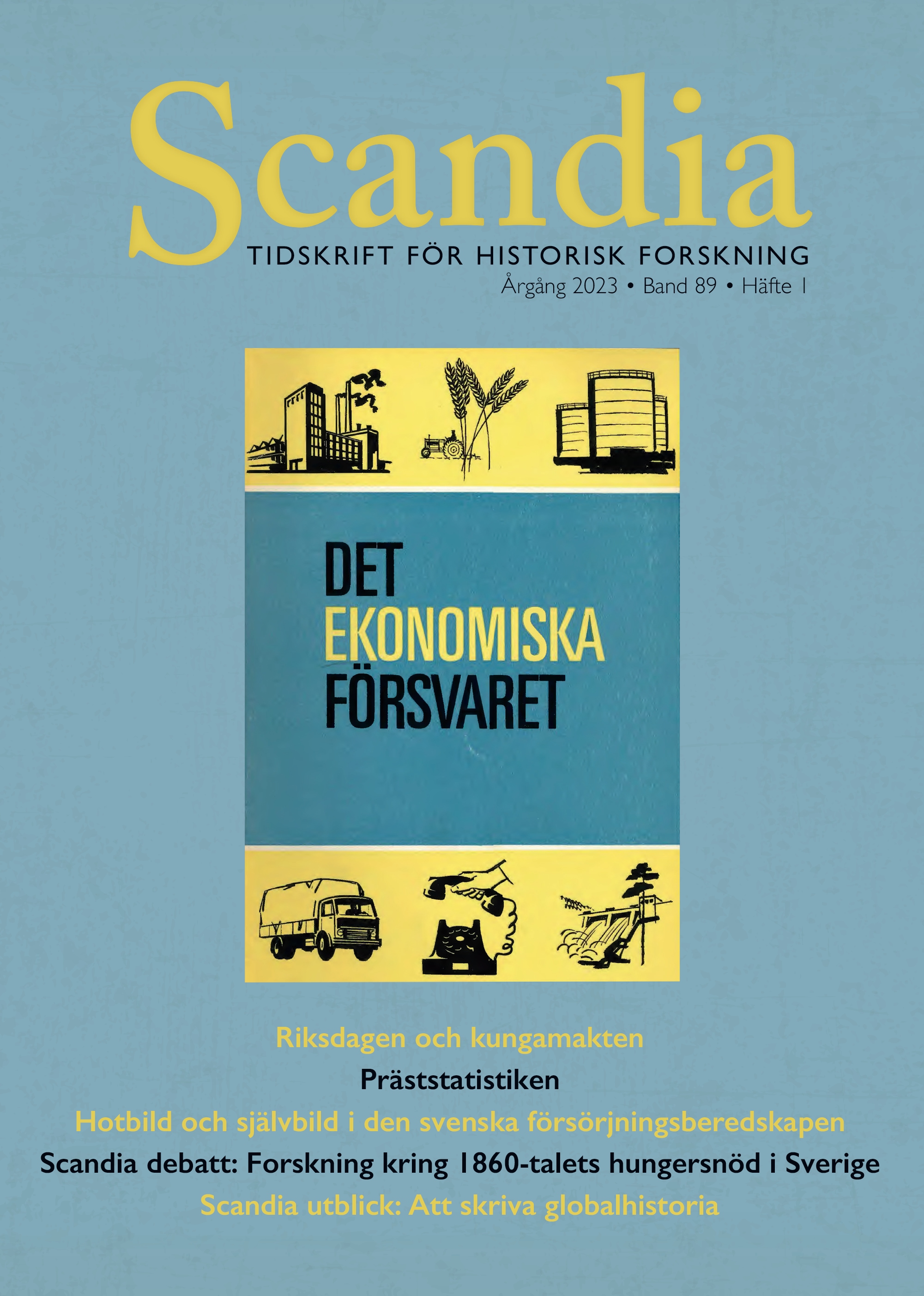Trying to Find the Roots of Democracy: the Riksdag and the King, 1611–1866
DOI:
https://doi.org/10.47868/scandia.v89i1.25207Keywords:
Riksdag, peasantry, democratic development, Swedish monarchy, early modern period, nineteenth centuryAbstract
The aim of this text is to problematize the role of the Riksdag in Swedish political history, circa 1600–1900, and its contribution to modern phenomena such as democracy and universal suffrage. First, the Riksdag representatives on several occasions strengthened the monarchy at the expense of the Riksdag and exchanged long-term institutional influence for gains regarding particular issues. At other times, they were noticeably passive and unable to restrain the monarchy. The Riksdag’s merits as a bastion for popular representation are questionable, and one might argue that between 1611 and 1809, the Riksdag was in a weak position vis-à-vis the king for 94 years (i.e., for almost half this period). However, this changed between 1809 and 1866, despite several similarities in the political framework, as well as political conditions for another shift to a strong monarchy and a weak or disbanded Riksdag. The last period of the old order of the four estates is thus key if we want to understand why the Riksdag finally achieved a strong position among other Swedish political arenas. This issue not only concerns historians, but also people interested in how and why representative assemblies become equally or more legitimate than authoritarian alternatives. As we live in a period in which democratic institutions and values are being questioned, it is important that we understand how they came to be
embraced in the first place





